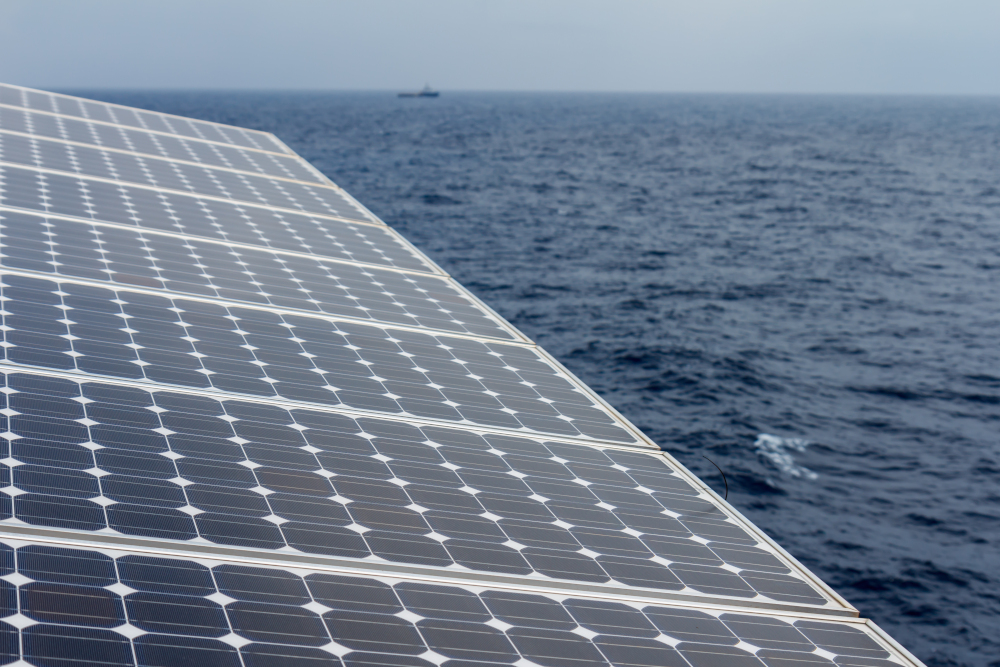Floating solar (FPV) is an up-and-coming branch of PV systems that have seen quite a rapid growth in the last couple of years. The technology relies on relatively traditional solar modules mounted on a floating structure. However, there are quite a few advantages of floating solar. Some floating solar systems can reduce the temperature of the solar cells and therefore improve efficiency. Also, floating systems can utilize areas that are not in conflict with urban development, such as reservoirs, dams or ocean space. This is very attractive in densely populated areas where land is either unavailable or very expensive.
Mounting the modules on the water brings a new set unknown aspects and parameters that need to be investigated. At IFE, we collaborate with several companies that are developing new technology for floating solar systems. Some of the companies we are working with on FPV are Ocean Sun, Statkraft, Scatec, Equinor, Multiconsult and Sunlit Sea.
We perform research related to:
- The development of individual FPV technologies
- Assessment of the performance and reliability of various FPV technologies in the field and in the lab
- Quantifying the effect of external parameters for better yield estimations
- Development of algorithms and procedures to improve operations & maintenance of FPV power plants
- Computational analysis of mechanical forces and thermal profiles
Through our work, we are monitoring several operating FPV plants, consisting of different technologies, located in various climates. We are closely involved in the upcoming work on FPV in IEA Task 13.
Some of our FPV projects:
HydroSun – HydroSun joins five leading research groups and six successful renewable energy companies with the aim of developing the required competence base for development and operation of hydro- floating PV (FPV) hybrid power plants. The KSP-project is a part of the Green Plattform project owned by Scatec.
ProSun – Together with Ocean Sun AS, we are exploring the unique opportunities of the Ocean Sun technology: Improved yield through direct water cooling, increased module packing density and improved reliability through reducing thermal strain.
MariSol – The main goal of the project is to develop and document knowledge related to the performance, reliability and degradation of Sunlit Sea’s integrated float and PV panel. Through their patented design, Sunlit Sea will reduce cost of FPV by employing a high degree of prefabrication, predictability and reduced O&M costs. An important part of the project is to develop new accelerated ageing test protocols specifically targeting FPV
FLOW – The primary objective of this project is to kick-start growth of a domestic industry in FPV by developing, documenting and publishing critical, new knowledge related to the performance and degradation of FPV and to clarify specific requirements for O&M.
